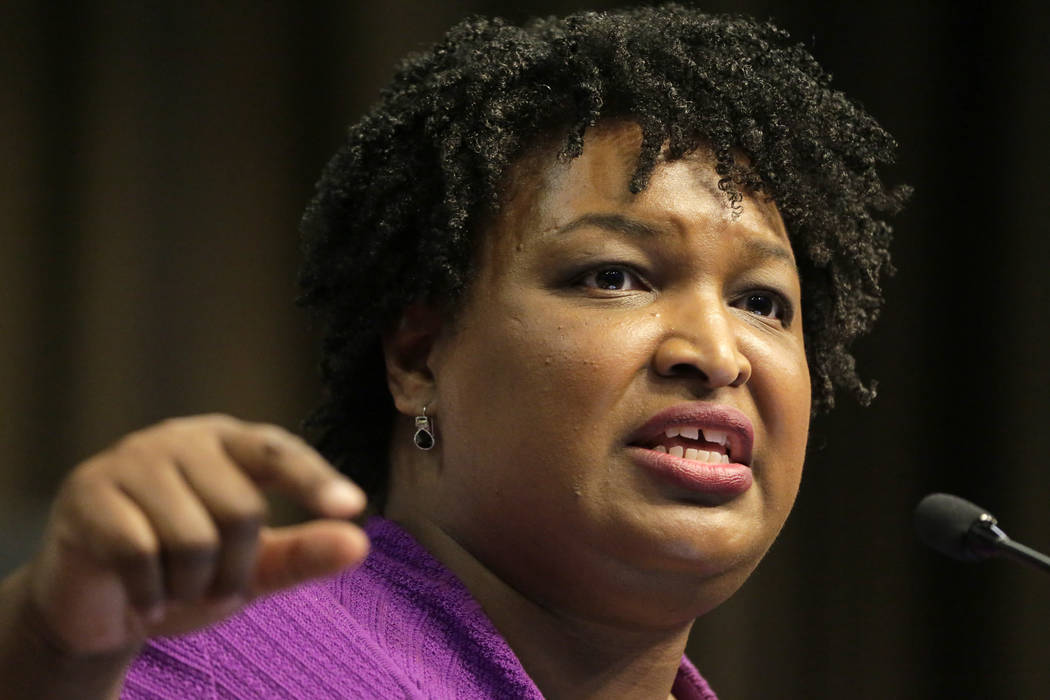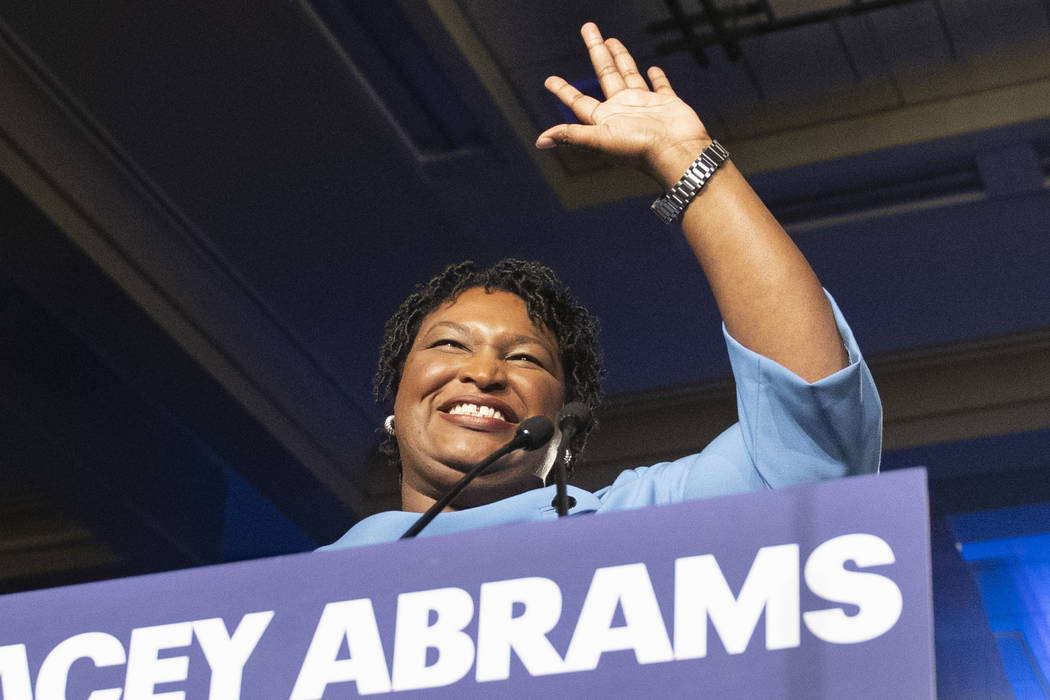Georgia Democrat Abrams won’t run for Senate in 2020
ATLANTA — Georgia Democrat Stacey Abrams says she will not run for a U.S. Senate seat in 2020, dimming her party’s hopes of a Senate majority and renewing speculation about her political future after last year’s unsuccessful run for governor catapulted her to national acclaim.
Abrams, 45, came within 60,000 votes of being the first black woman elected governor in U.S. history. She told The Associated Press she hasn’t ruled out a presidential bid, though she’s in no rush to join a Democratic field that already includes 20 candidates .
“I’m going to continue to watch how the national conversation around the presidency unfolds,” Abrams said in an interview after she told Senate Minority Leader Chuck Schumer, her chief Senate advocate, of her plans. “I’m not taking myself out of that conversation, but I’m not ready to make a determination, and I don’t think one is necessary at this moment.”
Abrams said she was “deeply gratified” to Schumer for recruiting her to run for the Senate and giving her ample time to make a decision. A Senate seat, she said, is “an extraordinarily persuasive idea” and a “critical role” but “not the role that I want to play.”
For now, Abrams said her emphasis remains on two advocacy groups — one focused on voting rights, the other on educating residents ahead of the 2020 census — that she helped launch after her November loss to Republican Brian Kemp. She also will consider a rematch against Kemp in 2022, and some of her confidants say that office still rests at the center of her near-term ambitions.
Tells Schumer
Abrams met Schumer on Monday in Washington, ending months of eager courting by the hard-charging New Yorker and leaving him to plot another uphill path to reversing Republicans 53-47 Senate advantage.
“He was extraordinarily gracious,” Abrams said.
Georgia is among a handful of states with Senate races where Democrats need an upset to have hopes of a new majority. Schumer has been open in his belief that Abrams would have the best shot to defeat Republican Sen. David Perdue, who in his first term has become one of President Donald Trump’s most loyal Capitol Hill allies.
Schumer also is looking to Montana and Texas for unlikely but possible victories. But as with Abrams, he has not yet landed headliner candidates. Democrats in Washington want Gov. Steve Bullock to take on Republican Sen. Steve Daines, but Bullock, the only Democratic governor to twice win a state Trump won, is eying a presidential run instead.
In Texas, former Rep. Beto O’Rourke is running for president instead of reprising his 2018 Senate bid that fell short against Republican Sen. Ted Cruz. Texas Democrats could turn to Rep. Joaquin Castro as their best shot to unseat Sen. John Cornyn. Castro’s brother, Julian, is running for president.
Beyond Senate implications, national Democrats had hoped an Abrams candidacy would fuel turnout among young and nonwhite voters to help the party’s presidential nominee in an emerging battleground state. Trump won Georgia by 5 percentage points in 2016 but fell short of a majority.
Schumer began his Georgia recruiting effort by inviting Abrams to deliver Democrats’ response to Trump’s State of the Union address in February, making her the first black woman to give an opposition response and further elevating her status in the party despite her loss.
Started skeptical
“I began with skepticism,” Abrams said of her deliberations, influenced in part by the years she spent leading the Democratic minority in Georgia’s General Assembly.
Abrams said she could envision “the best day and the worst day” in a chamber known for its slow pace and increasingly bitter partisanship.
“But for me it was what do I do every day, and is this the role I want to play for six years? Is this the role I want to play for 12 years or 18 years?” she said. “Because this is a job, and you focus on not the title but the job itself and the job that has to be done.”
Georgia Democrats also had been waiting for Abrams’ decision, with the presumption that she would have faced no serious primary challenge. Teresa Tomlinson, the former mayor of Columbus, the state’s second largest city, has made clear she would seek the seat if Abrams did not. Sarah Riggs Amico, who ran unsuccessfully for lieutenant governor last year, also is considering a bid.
Abrams said she will work to build Democrats’ field operation for whoever challenges Perdue. Tomlinson has been building ties with donors and activists around the state for several years, and Amico traveled the state in her 2018 campaign. But neither has the in-state organization, name identification or the national fundraising base that Abrams would have brought to the race.


















